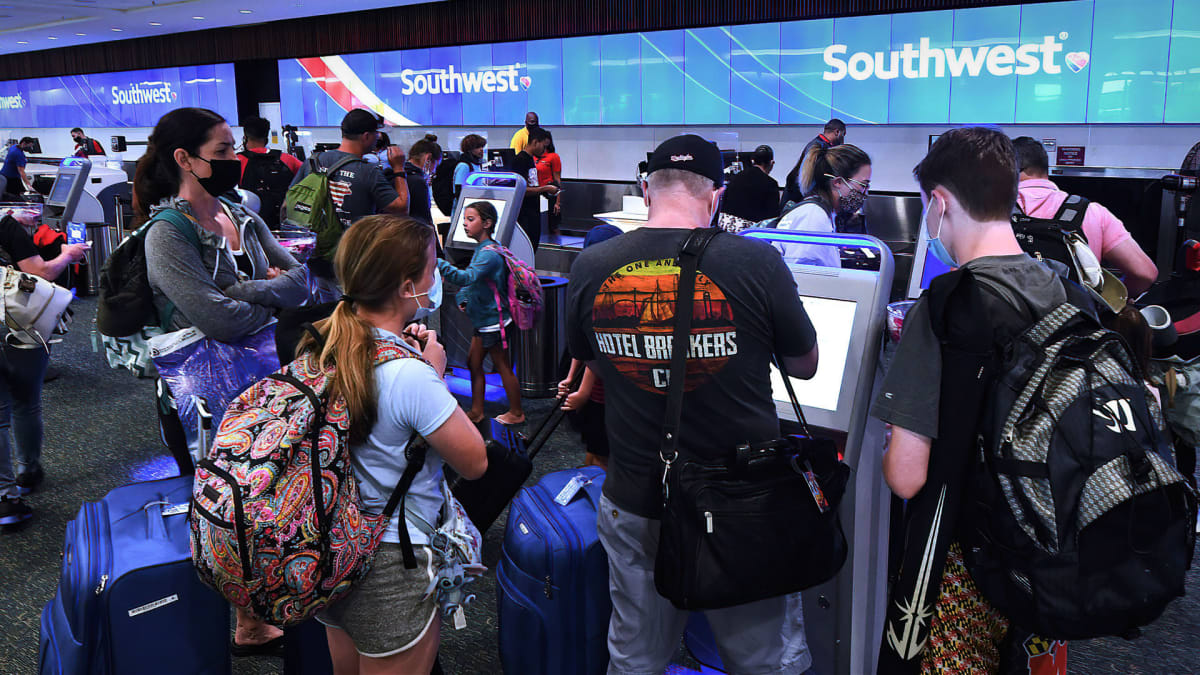
Airline stocks have taken off this year, with the US Global Jets ETF (JETS) of airline stocks up 21% year to date, compared to 13% for the S&P 500.
Strong travel demand and reductions in airline capacity have led to record profits for the industry.
That led Morningstar to address the question: “can the rally in revenue, profits, and stock prices continue?”
The outlook going forward isn’t so rosy, the investment research firm says.
The operating environment for US airlines will likely return to more normalized competitive dynamics in the next year or two, after current supply constraints moderate, according to Morningstar analyst Nicolas Owens.
He believes the 2023–27 period may resemble the 2015–19 pre-pandemic period, “with declining fuel costs, a largely consolidated industry, and robust demand for air travel.”
But there are a few differences between those two periods, Owens said. First, airlines piled on debt to withstand the pandemic. Second, current high profitability will erase tax shields the airlines have enjoyed. And finally, post-pandemic labor agreements are adding costs to airlines.
Bottom line: “There are no durable competitive advantages to be had in this industry,” Owens said.
“Long-term investors should seek exposure to air travel elsewhere, such as with the wide-moat suppliers of airframes and jet engines.” Airlines compete with one another to buy those companies’ products years in advance, he noted. A moat is a durable competitive advantage.
In any case, here are Owens’ views on the big four airline stocks. None of them earn a moat from him.
American Airlines
Morningstar's fair value estimate for American Airlines (AAL) is $12.20. The recent share price is $17.
“While American can achieve some operating cost improvement in coming years, we don’t expect it to structurally improve its relative position among airlines,” Owens wrote.
Within the next couple years, airlines will compete over prices and market share almost everywhere, he said, hurting their earnings.
Delta Air Lines
Morningstar's fair value estimate for Delta Air Lines (DAL) is $41. The recent share price is $44.50.
“While we believe Delta will continue to garner premium revenue yield, we see the spread between those yields and its overall costs more closely resembling the industry in the long term,” Owens said.
That’s true “especially as the levers of segmentation and the definition of a business traveler evolve.”
Southwest Airlines
Morningstar's fair value estimate for Southwest Airlines (LUV) is $42.90. The recent share price is $34.55.
Southwest is a leisure-focused, low-cost airline, and it’s No. 1 in domestic passenger volume. “The company has stuck to its strategy of streamlining airline operations to maintain lower unit costs than its full service rivals,” Owens said. Those low costs translate into cheaper tickets and a low-frills experience.
United Airlines
Morningstar's fair value estimate for United Airlines (UAL) is $36. The recent share price is $55.15.
United plans to add 700 narrow- and wide-body aircraft to its fleet by 2032. “We expect these more efficient aircraft to boost United's capacity (available seat miles) and support margin expansion,” Owens said.
He predicts operating profit margins will reach 11.5% later this decade, up from 5.2% in 2022 and 9.9% in 2019.







